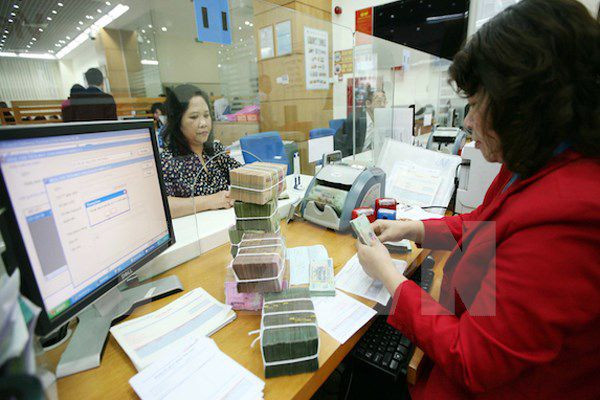Bad debt in Vietnam and the story of debtors "freely" changing to nice cars
Many debtors do not have money to pay back the bank but do not lack money to "freely" buy nice cars. The bank, from the position of "victim", when it complies with the law, is sometimes condemned and has to... "admit defeat" to the debtors.
 |
| Illustration photo |
These "half-laughing, half-crying" realities were just raised by many experts in the workshop: "Reducing and resolving bad debt in 2015 from a legal perspective" held on June 12 with no small amount of bitterness about current regulations.
As the person who mentioned the story of the debtor deliberately forgetting his obligations mentioned above, economic expert Can Van Luc admitted that it is very difficult to force such cases to fully repay the bank debts. This is one of the problems, according to him, that is causing the handling of bad debt to still have "a lot of work to do."
Mr. Luc raised questions about the coordination between the authorities, especially the police and local authorities, in similar matters when businesses and individuals deliberately do not pay their debts. According to him, the enforcement work is clearly having "problems" because sometimes the court has made a final decision but the debtor is nowhere to be found.
Agreeing with Mr. Luc, Ms. Tran Thi Hong Hanh, General Secretary of the Vietnam Banking Association, also affirmed that credit institutions face difficulties right from the start of filing lawsuits in mandatory cases.
“The procedure requires the credit institution to have a written document with the customer stating the dispute before the court can handle it,” Ms. Hanh said.
However, in the above case, Ms. Hanh said that this is not simple and the court does not accept the simplified procedure for credit institutions. By the time the debtor is sued, the representative from the Vietnam Banking Association said that the unit or individual being sued may no longer be at the place of residence.
“We do not have specific sanctions for debt defaulters, so credit institutions still face many risks,” Ms. Hanh assessed.
Also related to legal issues, another problem that makes bad debt difficult to resolve in banks, according to her, is the involvement of relevant agencies. Ms. Hanh gave an example of a case where credit institutions see signs of customers dissipating assets and are asked to involve authorities such as the police, wards and communes. However, she herself admitted that these agencies only provide assistance “within their authority” and the specifics are unclear.
This opinion was continued to be emphasized by lawyer Truong Thanh Duc, Chairman of the Board of Members of BASICO Law Firm in his comments.
Lawyer Duc frankly said: "The more businesses delay, the more they benefit." These units borrow from banks at high interest rates for a long time and if they receive a judgment from the court, the interest rate will eventually be calculated at only 9%/year for economic transactions. This judgment, according to him, is quite "light" and makes businesses delay paying their debts even more.
However, according to lawyer Duc, the most dangerous problem when dealing with bad debt is “legal obstruction.” According to regulations, banks have the right to seize assets in some cases, but Mr. Duc said that this right is difficult to exercise because of “public pressure” in support of the debtor.
“The law protects the weak and the victims, but we are terribly wrong. As bad debts increase, banks are the victims and the weak parties,” Mr. Duc emphasized./.
According to data from the State Bank, by the end of 2014, the bad debt ratio of credit institutions was 3.25%, a sharp decrease compared to 4.17% in June 2014. In a recent report to the National Assembly, State Bank Governor Nguyen Van Binh said that the banking industry will strive to achieve the goal of bringing the bad debt ratio to below 3% by the end of this year.
According to Vietnamplus






